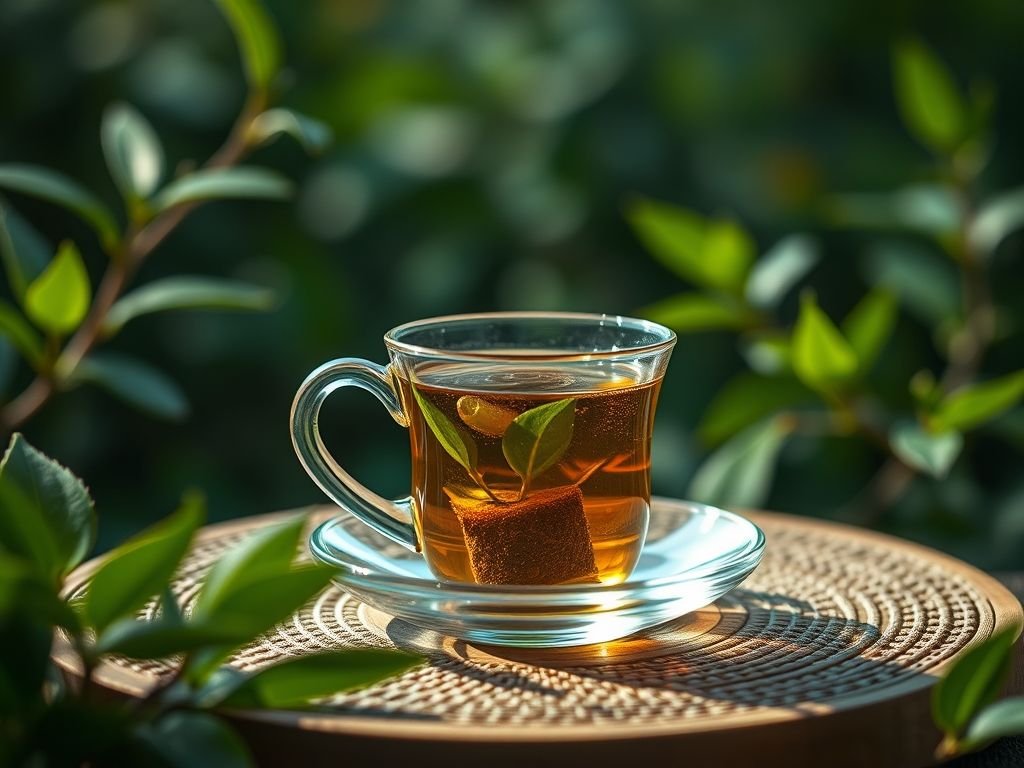Understanding Tea for Relaxation
Tea for relaxation refers to various herbal and non-herbal teas specifically consumed to promote a state of calm and tranquility. These teas often contain ingredients known for their soothing properties, such as chamomile, lavender, and valerian root. The act of drinking tea itself can be a ritual that encourages mindfulness, allowing individuals to unwind and detach from daily stressors.
The Importance of Tea in Natural Health
Tea has been a staple in many cultures for centuries, not only as a beverage but also as a medium for healing and relaxation. In the realm of natural health and herbal medicines, tea plays a crucial role due to its wide range of beneficial properties. The components found in many teas can help reduce anxiety, improve sleep quality, and support overall mental well-being. Understanding these benefits is essential for anyone looking to integrate tea into their relaxation routine.
Types of Tea for Relaxation
When it comes to choosing the right tea for relaxation, there are several types to consider. Each type has its unique characteristics and benefits. Here’s a detailed look at some popular options:
- Chamomile Tea: Known for its calming effects, chamomile tea can help reduce anxiety and promote sleep. Its mild flavor makes it an excellent choice for evening consumption.
- Lavender Tea: Lavender is renowned for its aromatic properties that induce relaxation. Drinking lavender tea can help ease tension and improve mood.
- Peppermint Tea: While often associated with digestion, peppermint tea also has a soothing effect on the mind, making it a fantastic afternoon pick-me-up.
- Valerian Root Tea: Valerian root is commonly used as a natural sleep aid. Its tea can help those struggling with insomnia or restlessness.
- Lemon Balm Tea: This herb is known for its stress-reducing properties. Lemon balm tea can enhance cognitive function while promoting relaxation.
How to Brew the Perfect Relaxation Tea
The process of brewing tea is as much an art as it is a science. Here are some practical steps to ensure you get the most out of your tea for relaxation:
- Choose Quality Ingredients: Opt for organic and high-quality tea leaves or herbal blends to ensure the best flavor and health benefits.
- Use Proper Water Temperature: Different teas require different water temperatures. For herbal teas, use boiling water, while delicate green teas do best with slightly cooler temperatures.
- Steep for the Right Duration: Follow the recommended steeping time for each type of tea to avoid bitterness and maximize flavor.
- Create a Relaxing Environment: Enhance your tea-drinking experience by setting up a peaceful space—dim the lights, light candles, or play soft music.
Practical Applications of Tea for Relaxation
Incorporating tea into your daily routine can be straightforward and rewarding. Here are some practical applications:
- Morning Ritual: Start your day with a cup of calming tea to set a positive tone.
- Afternoon Break: Enjoy a cup of peppermint or lemon balm tea to refresh your mind and reduce work-related stress.
- Evening Wind Down: Sip on chamomile or valerian root tea before bedtime to promote restful sleep.
- Mindfulness Practice: Incorporate tea drinking into your mindfulness or meditation routine, focusing on the aroma and taste to center yourself.
Understanding tea for relaxation opens doors to other related concepts in natural health. Here are a few:
- Aromatherapy: Similar to tea, aromatherapy uses essential oils to promote relaxation and well-being.
- Herbal Medicine: Exploring various herbs beyond tea can provide even more options for relaxation and health.
- Mindfulness and Meditation: Both practices emphasize the importance of being present and can be enhanced by the calming effects of tea.
Conclusion: Embracing Tea for Relaxation
Tea for relaxation is more than just a beverage; it’s a holistic approach to managing stress and enhancing overall well-being. By understanding the different types of tea available, how to brew them properly, and their applications in daily life, you can effectively incorporate this soothing ritual into your routine. As you explore the calming world of tea, remember to listen to your body and choose the flavors that resonate with you. Whether you enjoy a quiet cup in the morning or a soothing brew before bed, the benefits of tea for relaxation can be an invaluable addition to your health and wellness journey.
Engagement Call: Now that you know the benefits of tea for relaxation, why not try brewing a new blend this week? Observe how it impacts your stress levels and overall mood. Happy sipping!

